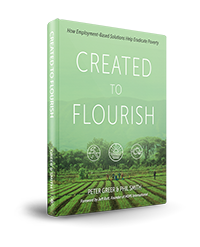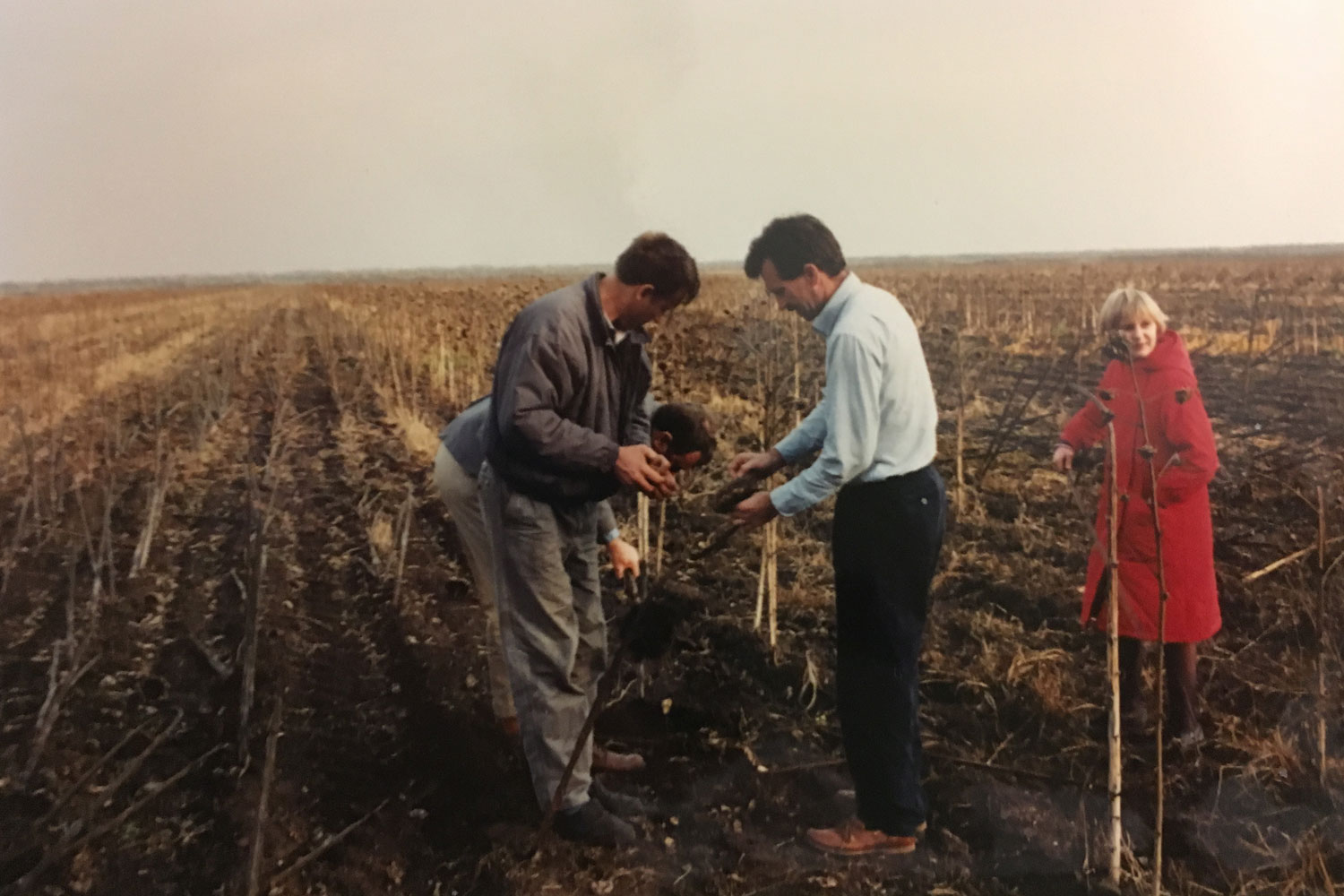by Jeff Rutt, Founder & Board Chair of HOPE International, Founder & CEO of Keystone Custom Homes, excerpted from the foreword to Created to Flourish
After the fall of the Soviet Union, Ukraine faced a debilitating economic crisis, leaving many without enough food to eat or clothes to wear. Along with others in my church, I felt compelled to respond. There were people who were hungry, who needed shelter, who didn’t have the hope of Jesus Christ. As we read in Isaiah 58:7, God has a specific idea about how we should translate our faith into action:
Is it not to share your food with the hungry
and to provide the poor wanderer with shelter—
when you see the naked, to clothe them,
and not to turn away from your own flesh and blood?
We couldn’t turn away, so my church in Lancaster, Pennsylvania, established a partnership with Pastor Leonid Petrenko and his church in Zaporozhye, a city located along the Dnieper River in southeastern Ukraine. We wanted to respond not just with money or donations but through building relationships. We greatly desired to join together as communities of faith seeking mutual encouragement.
Eager to respond to pressing needs, we began transporting containers of flour, rice, canned meat, clothing, and medical supplies. It seemed like a way we could care for the physical needs of our global neighbors, following Jesus’ command that if you have two tunics, you should give one away.
Before long, distributing the donated food and supplies to the people of his church and community had become a regular part of Pastor Petrenko’s job.
But as we visited the community over the next three years, we began to question our approach. Was all that free flour we were shipping proving more harmful to local flour vendors than the country’s economic crisis? Were we causing businesses to suffer, or even fail? After all, why would people pay for flour when they could get it for free?
On one of our trips, over dinner with Pastor Petrenko and his family at their home, we started discussing the aid containers. He shared that people, himself included, were grateful for the generosity of our church, and that he wasn’t sure what they would have done without our help. But then Pastor Petrenko, never one to mince words, asked a question that would change the course of my life:
Isn’t there a way you can help us help ourselves?
In that simple question, he had articulated the doubts and questions that had been growing in my mind and heart for a while: Was our church’s approach sustainable? We were providing for physical needs, but in the meantime, we were hurting local businesses, and we weren’t really breaking through the poverty.
Was there another way?
Following that eye-opening visit to Ukraine, I spent months praying, researching, and even attempting some new approaches. Eventually, I started reading about something called “microfinance.” At the time, this was a little-known strategy for alleviating poverty that involved making small loans to people who had little access to credit but had the vision to begin or expand a business.
This was a breakthrough moment: Microfinance seemed to offer a way to put more power and dignity into the hands of the people in Zaporozhye, investing in their dreams and ideas rather than just offering traditional charity.
While there was much I didn’t know about this approach, I believed God was calling me to step out in faith. After much prayer and seeking the counsel of those around me, HOPE International was registered as a 501(c)(3) nonprofit organization in May 1997, and the next year, HOPE officially disbursed its first loans to entrepreneurs in Zaporozhye.
In the years since then, God has grown HOPE in ways I could not have imagined. Since its founding, HOPE has become a global ministry, supporting microfinance institutions and church-based savings and credit associations across countries in Africa, Asia, Eastern Europe, and Latin America.
With its unique emphasis on Christ-centeredness, HOPE has developed an approach to poverty alleviation that seeks to address not only material poverty but also personal, relational, and spiritual brokenness.
In Created to Flourish, Peter Greer and Phil Smith share how entrepreneurship is a pathway out of poverty. Instead of offering handouts, they provide a roadmap to help you invest in dreams, inviting people to use their God-given gifts, abilities, and resources to provide for their families and draw near to Christ.
Created to Flourish reveals the Christ-centered heart and mind I hope inspires you to love God and your neighbors around the world.

Download your free copy of Created to Flourish to read more about how employment-based solutions are helping fight poverty.
















